
Ministry Updates
A Syrian Refugee Mother’s Impossible Choice
November 3, 2016
by admin
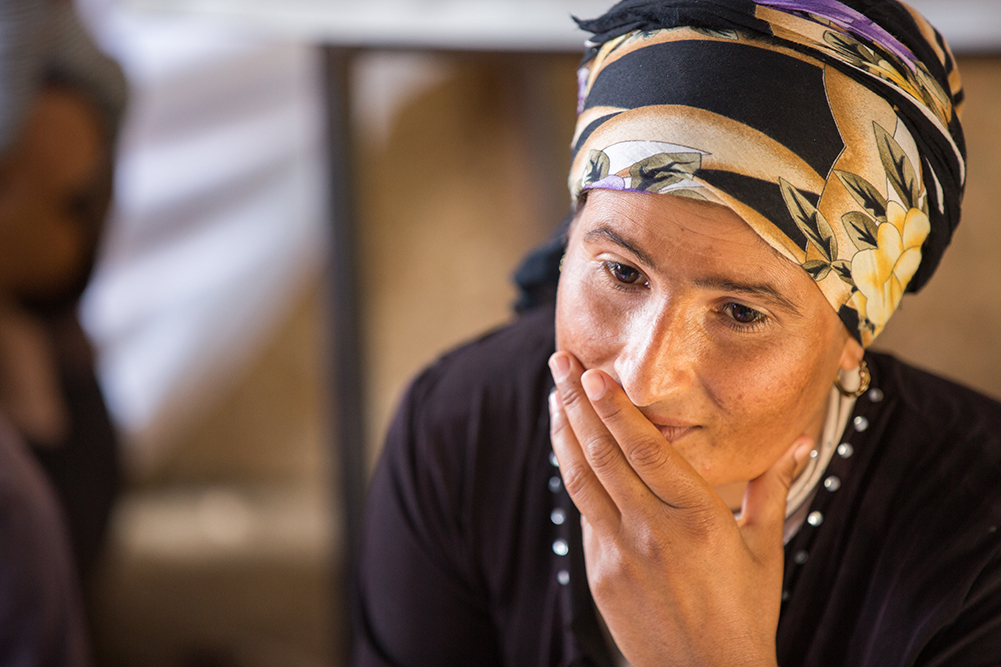
To protect our missionaries and the people they serve, all names and locations in this post have been changed or withheld. We appreciate your prayers for missionaries serving in sensitive regions around the world.
You’re a new mother with a choice before you: If you go to work, your baby will have no one to care for her. If you stay home, you won’t have money to care for her. What do you do?
If it seems an impossible choice, don’t worry. Whatever you decide, your in-laws say they will kidnap your child anyway.
And if all that seemed like a cruel thought exercise, you should know that for 25-year-old Amira, a Syrian refugee, that threat was a reality — until TEAM missionaries stepped in.
Abandoned and Bombarded
Amira deeply understands the pain of being separated from one’s parents. Her father died when she was a teenager. Her mother got remarried to a man who refused to care for someone else’s child.
Amira was shunted off into her paternal grandmother’s care for the remainder of her upbringing. Then her grandmother died, too.
In 2011, the Syrian government began using force against pro-democracy protesters, which gradually grew into all-out civil war. And in 2013, the Islamic State jihadist group took over the city of Raqqa.
Somehow, Amira pressed forward. By her mid-twenties, she was married and pregnant with her first child. But the little happiness she found was not to last.
“We were bombarded by planes,” Amira says of the day her husband died. “They bombarded our houses, and he was burned by a bomb dropped by the plane. … Many people died, and he died with them.”
Amira and her in-laws decided they had no choice but to flee the country.
Without a Morsel of Food
Since the war began, 11 million Syrians have fled their homes for other parts of the country (6.6 million) or for other nations entirely (4.9 million). Relationships can be critical during the process as families seek out personal connections in safe zones, send scouts ahead to assess locations and support one another when they settle.
When Amira arrived in her new country, though, her in-laws abandoned her, pretending they didn’t even know her. Desperate, she reached out to an elderly uncle, Burhan.
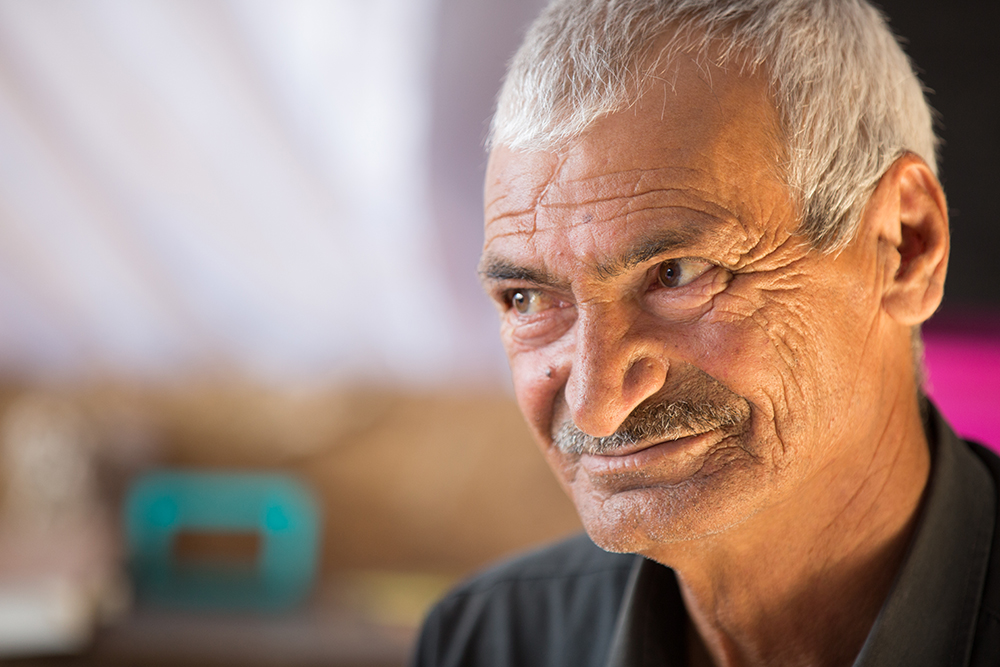
Amira’s uncle, Burhan, is her only family now. Photo by TEAM
“She came to me without a morsel of food,” Burhan says.
Burhan lives in a city where refugees are officially banned. Moving there means giving up rights as a refugee, but the promised work opportunities, mostly in agriculture, continue to pull people in.
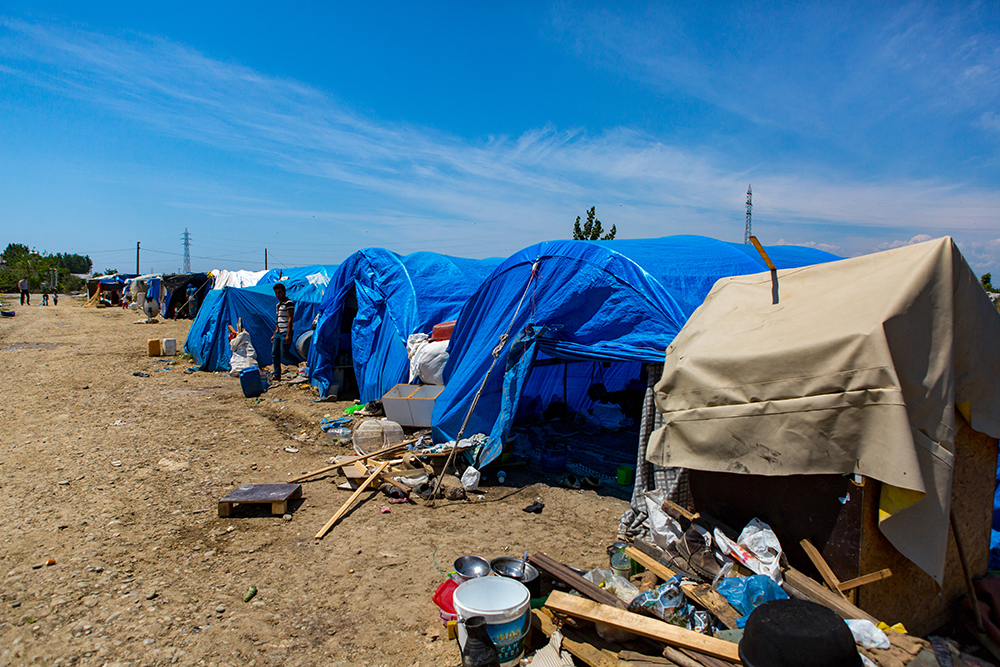
Amira and her baby live with Amira’s uncle in a makeshift tent community with other refugees. Photo by TEAM
Burhan brought Amira to an illegal camp run by a local migrant family. Refugees pay them rent, and the family provides space to build a tent with a little electricity and organizes work opportunities with local employers.
Unfortunately, the promises of plentiful work in the city are only half true.
Because the refugees don’t have rights in closed cities, employers can pay them less than ordinary workers or even refuse to pay entirely once a job is finished. And when the agriculture season ends, jobs are few and far between.
Amira, Burhan and several other families struggled to pay their rent, so the landlord evicted them. The families set up camp on a nearby plot, but the landlord still talked to other landowners to discourage them from giving the group work.
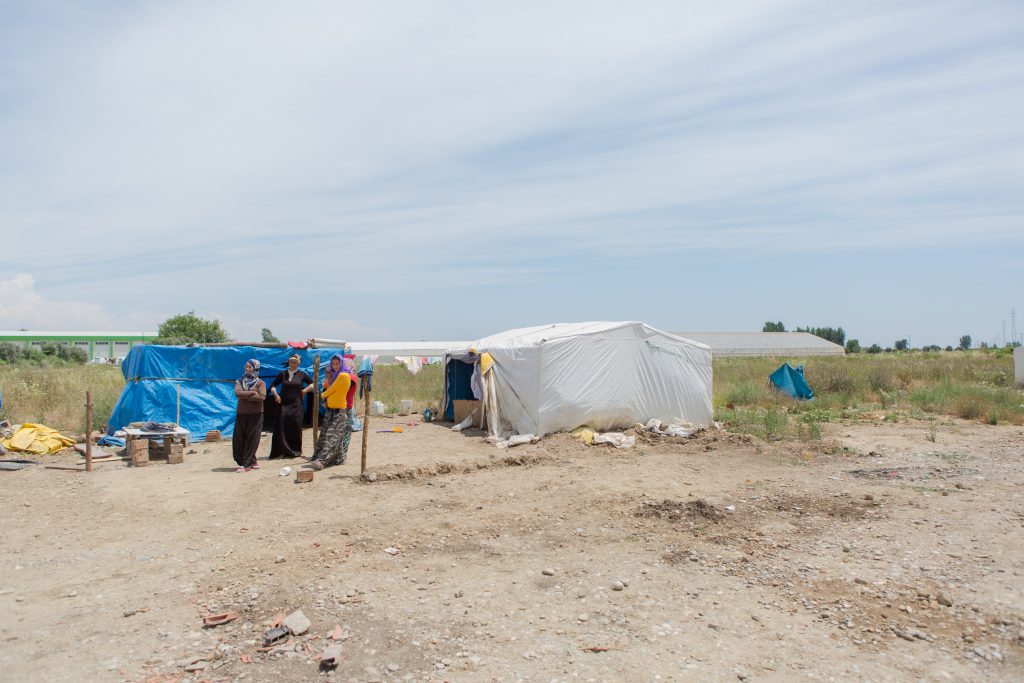
The refugee community is without running water or electricity, making personal hygiene and household chores difficult. Photo by TEAM
“They can’t work. They don’t have electricity. They’re even worse off than they were before,” TEAM missionary Garrett Bennett says.
Meanwhile, Amira gave birth to a girl, and her in-laws began to acknowledge her again — this time, with threats. They said Amira couldn’t care for the baby so they were going to take her away. And Amira, a breastfeeding mother, had no defense to offer.
“I can’t do anything because I have to take care of [my daughter]. … I can’t work. If no one helps me, I won’t be able to provide for her,” Amira says.
Walking Together
TEAM missionaries Garrett and Natalie Bennett became missionaries so they could plant churches, not take care of refugees. But as more and more refugees started coming to their city, they knew they had to do something.
“This is where we live, and they’re here and the need is great,” Natalie says. “And we can’t turn a blind eye and just say they’re not supposed to be here, so we’re not going to help them.”
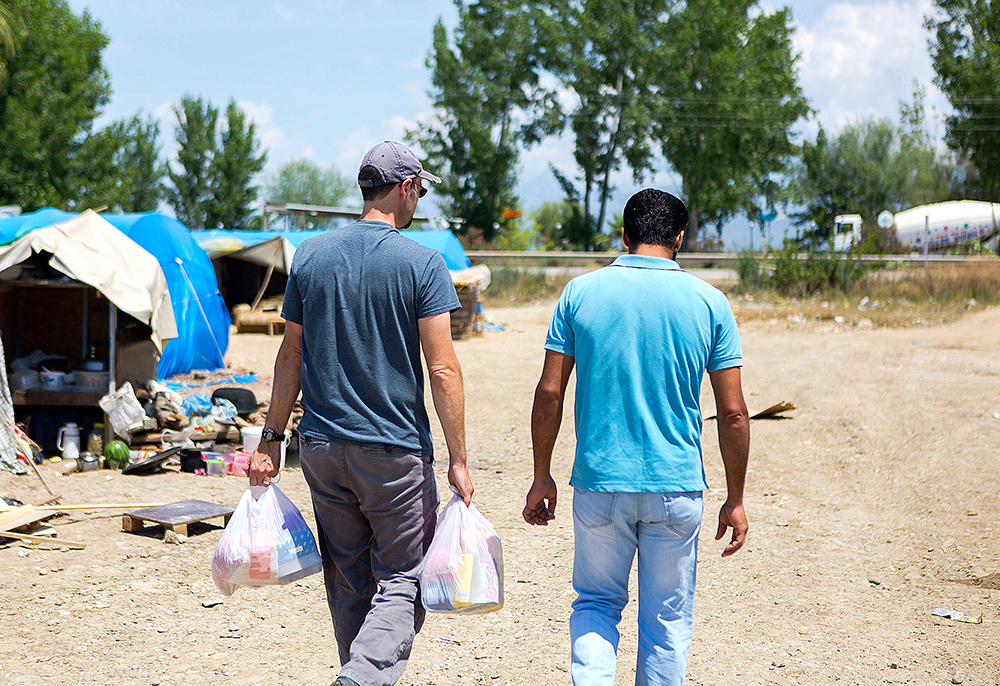
TEAM workers continue to tangibly serve families like Amira’s through weekly food donations. Photo by TEAM
The couple and some local volunteers started visiting unofficial camps to hand out bags of food and ask refugees what they needed. At one camp, virtually every woman said the same thing: They needed someone to take special care of a 25-year-old, single mom named Amira.
The Bennetts generally think of their food packets as supplements to whatever families can buy themselves. But when it comes to Amira, her daughter and Uncle Burhan, they decided to provide everything: food, clothing, and supplies for the baby.
One of the Bennetts’ TEAM partners told her church’s sewing circle about Amira, so the group sewed a blanket for the baby and started raising money for the extra food.
The aid has allowed Amira to keep and care for her daughter, even though she can’t work. And with each weekly visit, her relationship with the missionaries has grown deeper.
“She was pretty reserved and cautious around us at first,” Natalie says, “but now, she’s started to open up and really greets us with a hug and a kiss.”
In time, the Bennetts pray their friendship will lead Amira to hope in Christ. But while they wait, they will walk with her through her trials, pointing her to the One who will always hold her close, just as she holds her own daughter.
Related articles


